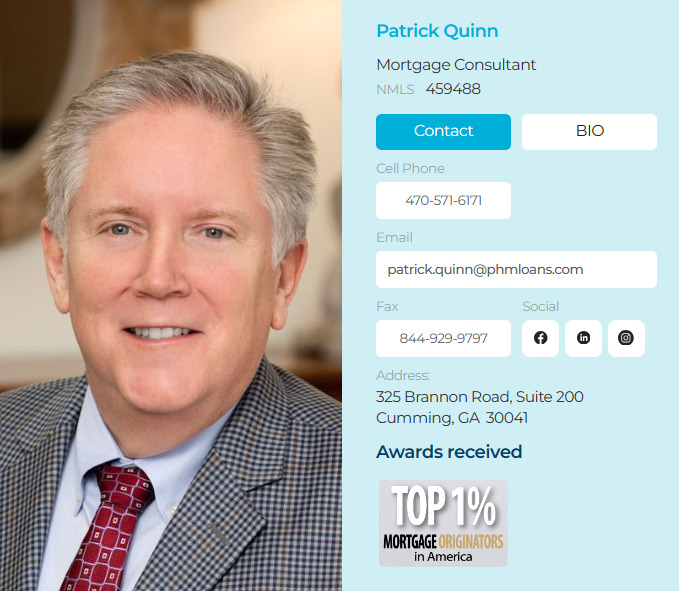 The media is filled with stories of buyers purchasing properties with little or no down payment, but that is just a small slice of the overall picture. In most cases even a “low down payment loan” will require a 5% down payment, and you will very likely be paying closing costs (which can run upwards of 2.5% of the loan amount) as well. Some loans will allow you to bundle the closing costs into the loan, but not all. (Some state and local governments offer down payment assistance programs for first-time buyers, so you’ll want to check on that.)
The media is filled with stories of buyers purchasing properties with little or no down payment, but that is just a small slice of the overall picture. In most cases even a “low down payment loan” will require a 5% down payment, and you will very likely be paying closing costs (which can run upwards of 2.5% of the loan amount) as well. Some loans will allow you to bundle the closing costs into the loan, but not all. (Some state and local governments offer down payment assistance programs for first-time buyers, so you’ll want to check on that.)
Keep in mind that while a low down payment loan may sound like a great idea, it means that you will have a higher monthly payment and that you will be required to qualify for a higher loan amount. In addition, the lender will require private mortgage insurance on the loan which can translate to another hundred dollars, or more, per month being added to your payment.
To put yourself in an ideal purchasing position, you should set aside 20% of the purchase price for a down payment (plus closing costs) Not only will this reduce your monthly loan payment and make qualification much easier, it will remove the need for private mortgage insurance which can save you thousands of dollars over the life of the loan.
2. Get your credit in order
Contact the three major credit bureaus (Equifax, Experian, and TransUnion) and request a free copy of your credit report (you can do this once per year). Your credit report details your borrowing history which includes information such as whether payments are made on time or are paid late and if any debts have been “written off” by your creditors as unpaid. It important that you read every item in the report to verify that the information is accurate. Be sure to have any errors corrected before you apply for a mortgage.
Lenders depend on these reports when determining not only if they will lend you money, but what interest rate they will charge you for the loan, so it is important that you have the cleanest possible record when applying for a mortgage loan. Most lenders require a minimum credit score of 620, but a score of 720+ will help you earn a lower interest rate.
If your credit score is low, the best thing you can do is pay all of your bills on time and pay down any outstanding debt. START NOW!
3. Get prequalified
Once you have the money for your down payment and closing costs set aside, and your credit is in the best possible condition, it is time to speak with a lender.
You will be required to provide the lender with a great deal of documentation which will provide them with proof of your employment status, income, etc… (ex: W-2 forms, pay stubs, 3 months of bank statements, 2 years personal income tax forms). If you are self employed, expect them to require additional proof of business income (P&L, balance sheet, income tax forms for the business)
After reviewing your documentation, the lender will be able to provide you with a letter stating that you have been pre-approved for a specified loan amount. This letter is more important than ever as many sellers will not consider an offer which is not accompanied by a pre-approval letter. In fact, I saw one listing last week that required the letter be forwarded to the listing agent before a showing appointment could be set.
4. Decide how much you can afford to pay each month
Getting pre-qualified is a very important step in preparing to buy a home. However, do not depend on the lender to tell what you can afford. Buyers are often approved for loan amounts with monthly payments much higher than they can comfortably afford to pay. The generally accepted rule is that your home should not exceed 3 times your gross income. However, that “rule” does not take into account your personal lifestyle choices or expenses such as alimony, child support, daycare, etc… You are the best person to decide what amount you can comfortably afford to spend on housing each month. I recommend that you use a spreadsheet to layout a monthly budget and work backward into the amount you can afford to buy.
5. Develop a list of needs & wants for your new home
For most of us, buying a home is by nature an emotionally charged life event. However, it is important that you do your best to separate your emotional needs from logical needs when completing this step.
Start by make a comprehensive wish list for your new home (size, features, special needs requirements, decorative finishes, etc…) and then break the list down to actual NEEDS –vs- WANTS. While granite countertops and stainless steel appliances are most likely high on your “wants” list, items like location, quality of local schools, number of beds/baths, etc.. will certainly place high at the top of the “needs” list. By limiting each list to a maximum of 5 items, you will find it much easier to focus your home search more easily.
6. Decide where you want to live
Determine what your top 3 priorities are in terms of location (commute time, quality of schools, proximity to friends/family, etc..) and have your real estate agent help you target three or four neighborhoods in your price range that meet your criteria. Visit the neighborhoods frequently at different times of day on various days of the week. This will help you get a feel for the “flow” of the area and may make targeting a neighborhood even easier.
7. Help your real estate agent help you!
Your real estate agent is your partner! The more open and honest you are about what is important to you, the more likely it will be that he/she can help you find the perfect home. If you change your mind about something once you’ve seen a few properties tell your agent immediately so they can alter the search plan. Your agent wants you to find a home you feel is perfect for you and your family and working as a team can make that happen!
This Cumming GA Real Estate blog is hosted by Gayle Barton of BERKSHIRE HATHAWAY HomeServices Georgia Properties.
I specialize in Real Estate sales in the following Forsyth County and North Fulton County cities: Cumming, Suwanee, Alpharetta, Milton and Johns Creek. Other north metro-Atlanta suburbs are serviced by request, so please call.
Gayle Barton Forsyth County Real Estate | Cumming GA Real Estate | Mountain Crest Homes For Sale
Gayle Barton Cumming GA Real Estate | Forsyth County Real Estate
Disclaimer: Information contained in this post is deemed reliable on the date of publication, but it is not guaranteed and it is subject to change without notice. All content, including text, original art, photographs and images, is the exclusive property of Gayle Barton and may not be used without expressed written permission.

 My clients needs are my number one priority and putting them first is how I distinguish myself from other agents in my area.
My clients needs are my number one priority and putting them first is how I distinguish myself from other agents in my area. 
